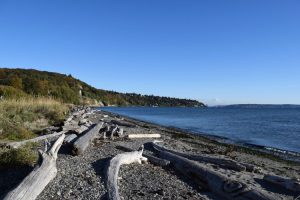Wildness in Urban Parks Important for Human Well-Being
Michelle Ma · UW News · February 26, 2020
Featuring Peter Kahn, Nature and Health researcher and Steering Committee member

As metropolises balloon with growth and sprawl widens the footprint of cities around the world, access to nature for people living in urban areas is becoming harder to find.
If you’re lucky, a pocket park might be installed next to a new condominium complex on your block, or perhaps a green roof tops the building where you work downtown. But it’s unusual to find places in a city that are relatively wild — even though our evolutionary history suggests we need interactions with wild nature to thrive.
A new study led by the University of Washington has found that not all forms of nature are created equal when considering benefits to people’s well-being. Experiencing wildness, specifically, is particularly important for physical and mental health, according to the study published Jan. 29 in the journal Frontiers in Sustainable Cities.